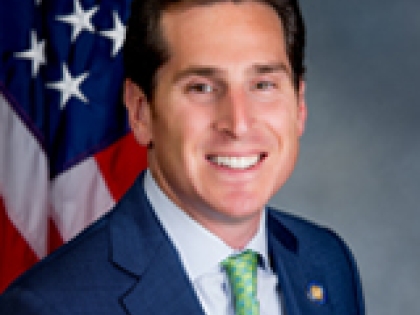
Vaccination gives Holocaust survivors new lease as Remembrance Day approaches
For Holocaust survivor Abraham Rodstein, becoming fully vaccinated against the coronavirus also came with a dose of relief.
"Even if I get this thing in a mild form," Rodstein, 92, of Amityville, said of COVID-19, "I won’t have to go on a respirator … or to the ICU."
Rodstein still plans to remain vigilant — masks indoors, avoiding crowded places — but completing the vaccine two Sundays ago was a sign of hope following a year with few such signs.
The resident of the age-55+ Snug Harbor Condominium community was among the Holocaust survivors who have been fully vaccinated under a special effort to inoculate that elderly population. Like others their age, they are among the most vulnerable to the ravages of the virus.
Wednesday evening begins Holocaust Remembrance Day, or Yom Hashoah in Hebrew, to memorialize the 6 million slain Jews. ("Shoah" means "catastrophe.") The date, which falls according to the Jewish lunar calendar, was chosen to mark the 1943 anniversary of the Warsaw Ghetto Uprising.
State Sen. Todd Kaminsky (D-Long Beach), who helped Holocaust survivors get into the clinics and roll up their sleeves, said Tuesday: "They’ve endured more than anyone could expect a human to endure. And this last year, they’ve also been deprived of companionship, so I think it’s appropriate and right to make sure that they are at the front of the line of those getting vaccinated so they can enjoy the years that they have."
At one site alone, the Marion and Aaron Gural Jewish Community Center’s Harrison-Kerr Family Campus in Cedarhurst, 150 Holocaust survivors were fully vaccinated, said Emily Kutner, spokeswoman for the UJA-Federation of New York, one of the site’s coordinators. Others may have been vaccinated elsewhere.
Next up, said UJA chief executive Eric Goldstein: seeking to vaccinate homebound Holocaust survivors. But that special population is dwindling, Goldstein said: "The babies among this group are, you know, 76, 77, 78."
Recalling a recent conversation with a newly vaccinated Holocaust survivor, Goldstein said: "It’s like a new lease on life. It gave her … some degree of comfort to leave her home for the first time in over a year and reengage with the world."
In 2020, many Passover seders — the holiday's traditional service and meal — were put online, made smaller or canceled due to pandemic restrictions on gathering. "This year, because of these programs, many of the survivor community were able to engage at family and friends’ seder tables," Goldstein said.
Rodstein, originally from Lithuania, is among about 1,500 living Holocaust survivors on Long Island.
There are more than 20,000 living survivors in New York City, and about 2,635 Holocaust survivors have been vaccinated by UJA programs in the metro area, Kutner said.
Rodstein moved to the United States after World War II. During the Holocaust, he created a phony police armband for his dad to ward off Nazis and keep them from "selecting" the family for extermination, he told Newsday in 1997.
The coronavirus pandemic meant, for him, the end of weekly discussion groups on Fridays at the Massapequa library. No more meals out at restaurants. And Wednesdays at the Merrick Jewish Center, when a different entertainer would perform each week, were no longer.
"Those things ceased to be," he said.
A fellow Holocaust survivor, Jack Rybsztajn, 96, of Woodmere, said: "The pandemic broke down everybody’s life."
Rybsztajn couldn’t say for sure the last time that he’d gotten a haircut and shave from the barber. The hair on his head grew long — that is, what hair he had left, he said with a chuckle — and what started off as stubble grew into a gray, overgrown beard.
"I looked like a rabbi," said Rybsztajn, a native of Poland, Orthodox Jew and a death-march survivor of the Holocaust who immigrated to the United States after the war.
Late last month, he got the second of his two-dose vaccine, from the Cedarhurst site. And on Monday, his grandson traveled out to Woodmere to take his grandfather to the barber shop for a haircut.
"They didn’t even want to charge me for it. ‘It’s their privilege,’ they said," Rybsztajn recalled. "My grandson wanted to pay and they said, ‘no, no, no, no, no.’"
In a telephone interview Monday, Rybsztajn paused to weep as he looked at photographs on the wall of his parents, murdered by the Germans.
"Fortunately," he sobbed, "I still have some pictures of them."
Rybsztajn made a reporter promise to come meet him in person someday, sooner rather than later.
"You have to pray for me I’ll be around," Rybsztajn said. "Just hoping is not enough."